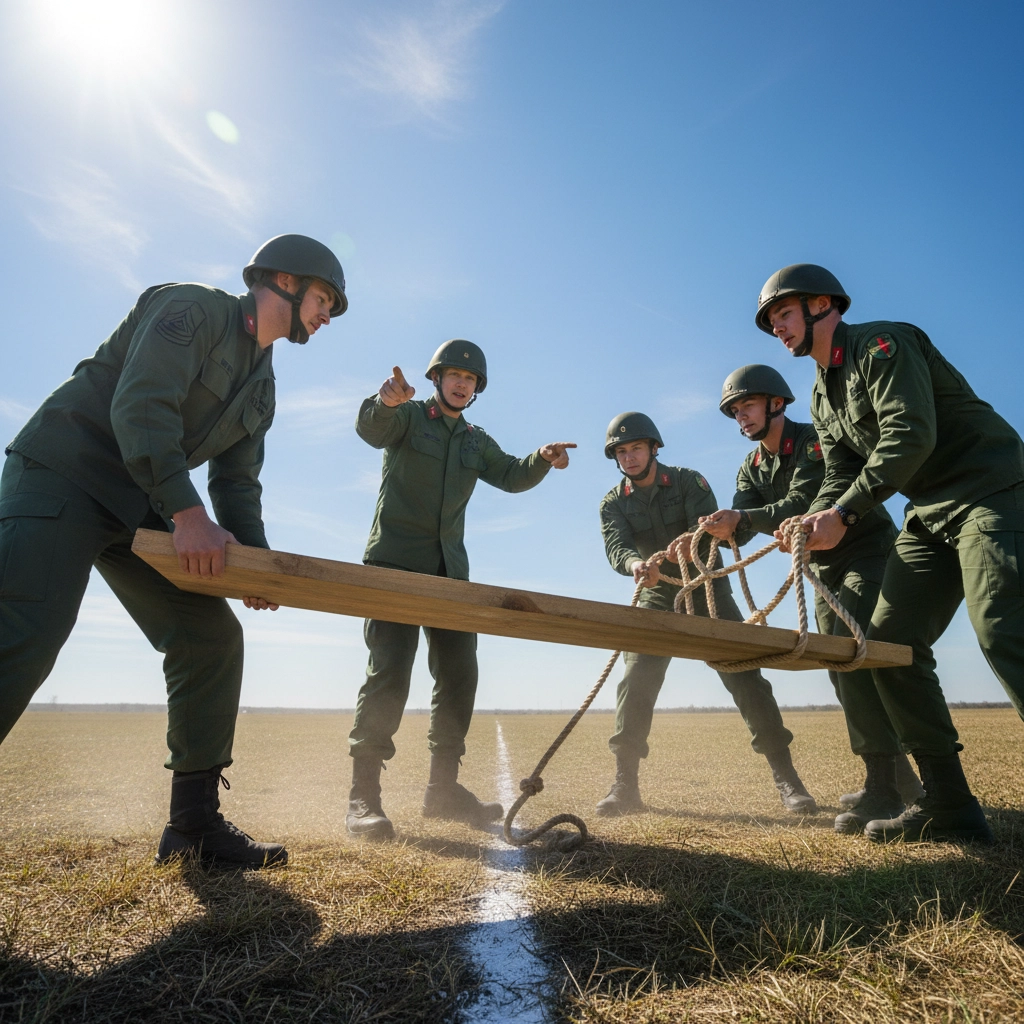Author: Col Rajvir Sharma
Published: Thursday, 18 September 2025 at 09:30 AM (IST)
Description: Discover the truth about SSB selection in 2025. Learn why your background doesn't determine your success and what actually matters for clearing the Services Selection Board interview.
"The SSB doesn't look at where you come from; it looks at where you're going. Your potential for leadership is what defines you, not your past." , Brig. Anil Kumar, Former SSB Assessor
Let me address the elephant in the room directly: No, your background does not matter in SSB selection for 2025. This is perhaps one of the most persistent myths that continues to create unnecessary anxiety among aspiring officers. The truth is far simpler and more encouraging than you might think.
The Services Selection Board operates on a fundamental principle: they assess your Officer-Like Qualities (OLQs) and leadership potential, not your family history, educational pedigree, or previous military exposure. This scientific approach ensures that the Indian Armed Forces recruit the best leaders, regardless of their civilian or military backgrounds.
You've probably heard it countless times: "Candidates from defense families have better chances," or "NCC certificate holders get preferential treatment." These statements are not just misleading: they're completely false.
Here's what actually happens during SSB selection: Three experienced assessors: the Interviewing Officer (IO), Group Testing Officer (GTO), and Psychologist: evaluate every candidate using standardized procedures designed to reveal genuine leadership traits. They can easily distinguish between authentic qualities and superficial military knowledge gained through family connections or cadet programs.

Consider this: Many of India's most distinguished officers came from entirely civilian backgrounds. They cleared SSB purely based on their demonstrated potential during the five-day selection process. Your small-town upbringing, your farmer father, or your complete lack of military exposure doesn't disadvantage you: it might actually work in your favor by ensuring your responses are genuine rather than rehearsed.
Instead of worrying about your background, focus your energy on understanding what assessors truly look for. The SSB evaluation centers around 15 Officer Like Qualities organized into four distinct categories:
Your ability to think systematically and execute plans effectively. This includes practical intelligence, reasoning ability, and organizing capacity. The board observes how you approach problems, structure your thoughts, and implement solutions during various tasks.
Your capability to work harmoniously with others while maintaining your individual identity. This encompasses social adaptability, cooperation, and the ability to influence others positively. Remember, leadership in the military is about inspiring teams, not dominating them.
Your natural tendency to take initiative and guide others toward common objectives. This includes initiative, self-confidence, speed of decision-making, and ability to influence groups. These qualities emerge naturally during group tasks and discussions.
Your mental resilience and drive to achieve objectives despite obstacles. This covers courage, determination, stamina, and the ability to perform under pressure. These attributes are tested through outdoor tasks and stress interviews.
Understanding the SSB's systematic approach will help you appreciate why background bias is impossible:
Stage I begins with the Officer Intelligence Rating test, assessing your cognitive abilities through verbal and non-verbal reasoning. The Picture Perception and Discussion test evaluates your perception and communication skills. These standardized tests cannot be influenced by your family background or previous military exposure.
Stage II involves psychological testing, group tasks, individual obstacles, personal interviews, and the final conference. Each component is designed to test different aspects of your personality under varying conditions. Your responses to hypothetical situations, your problem-solving approach during outdoor tasks, and your self-awareness during interviews reveal your true character.

The genius of this system lies in its comprehensiveness. Even if you could somehow fake responses in one area, maintaining consistency across all tests for five consecutive days while under observation is practically impossible.
Here's something that might surprise you: civilian candidates often perform better because their responses are more authentic. While candidates with military exposure might rely on memorized answers or expected responses, those from non-defense backgrounds tend to provide genuine, spontaneous reactions that assessors value highly.
Your diverse life experiences: whether managing your family's business, leading college projects, or overcoming personal challenges: have likely developed leadership qualities that military-background candidates might lack. The key is recognizing and articulating these experiences effectively during your assessment.
Focus your preparation on developing genuine leadership qualities rather than military trivia. Start by conducting honest self-assessment: What situations have you handled independently? When have you motivated others or taken initiative? How do you respond to unexpected challenges?
Practice the principle of "Manasa, Vacha, and Karmana": alignment in thought, word, and deed. This means being consistent in how you think, speak, and act throughout the selection process. Assessors are trained to identify contradictions between what you say and how you behave.
Develop your communication skills through regular practice with current affairs discussions, group conversations, and public speaking opportunities. Your ability to express ideas clearly and confidently matters more than knowing military jargon or defense terminology.
Approach your SSB with confidence in your unique background rather than anxiety about it. Your civilian experiences have shaped problem-solving approaches that military-background candidates might not possess. Your fresh perspective on leadership challenges could be exactly what assessors are seeking.
Remember that the Armed Forces need officers who can connect with soldiers from diverse backgrounds across India. Your civilian upbringing might actually enhance your ability to understand and motivate troops who share similar backgrounds.

Maintain authenticity throughout your assessment. Don't try to project an image of what you think an ideal candidate should be. Instead, be the best version of yourself: confident, genuine, and focused on demonstrating your natural leadership abilities.
The SSB selection process is designed to identify individuals with the potential to become effective military leaders. Your background: whether civilian or military: is irrelevant to this assessment. What matters is your character, your leadership potential, and your commitment to serving the nation.
Instead of dwelling on perceived disadvantages, invest your preparation time in developing authentic leadership qualities, improving your communication skills, and building the mental resilience required for military service. Focus on what you can control: your attitude, your preparation, and your performance during the five-day assessment.
Take advantage of resources available at Future Army Officers Academy to structure your preparation systematically. Remember, success in SSB comes from understanding the process, developing genuine leadership qualities, and presenting your authentic self with confidence.
Your background doesn't define your potential: your character does. Approach your SSB selection with this truth in mind, and you'll find that your civilian experiences have prepared you for leadership in ways you never imagined.
Jai Hind!